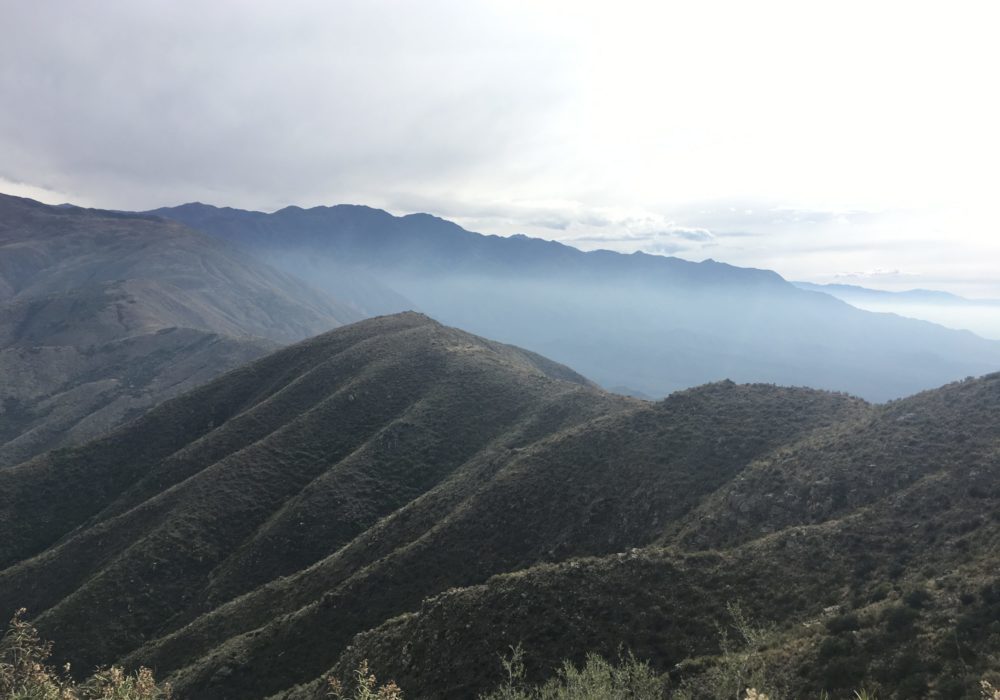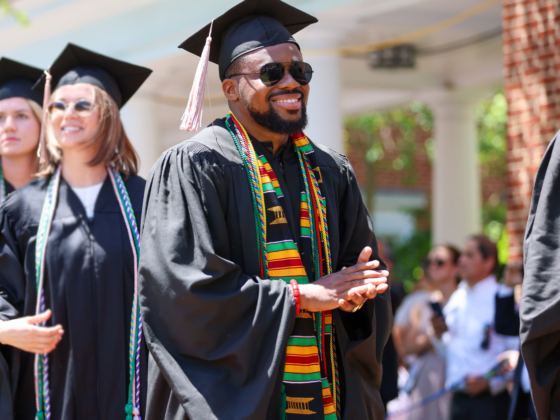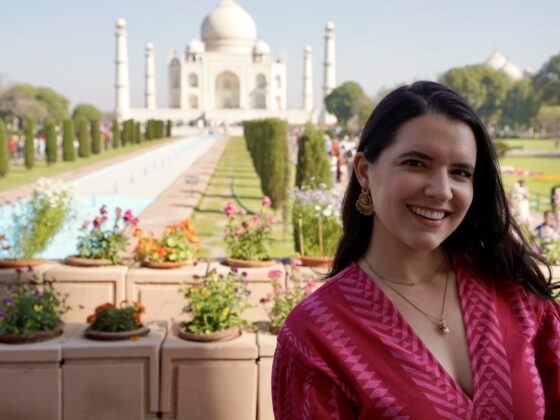The above photo of Argentina landscape was taken during the Darden Worldwide Course to Argentina in 2017
Joe Stanley is a current first year student in Darden’s Executive MBA program with a global designation (GEMBA). Recently, he participated in a virtual global course, Doing Business in Argentina, in which he drew valuable connections to product strategy in the U.S. and applied lessons learned to his current workplace. Joe shared more reflections about the virtual Argentina course and his own Darden journey:
Please share a little bit about yourself and your journey to Darden.
I currently work in strategy and product management in the fintech space. Before now, my career had woven back and forth across the tech startup and public policy fields. While that had allowed me to rapidly ascend into more strategic roles, it also caused some gaps to emerge that a more traditional path may have addressed. For instance, I could construct a yearly budget, but I felt too reliant on my finance colleagues when it came to evaluating complex forecasts, or understanding our cash flows from an accounting perspective.
I had been on the fence about pursuing an MBA for years, but it came to a head last year when I narrowly missed out on a new role I had applied for. In chatting with the hiring team after the fact, they admitted that the relative gap in financial fluency cost me the role. At that point, I knew I had to get off the fence if I wanted to reach the next level of my career.
When I started researching schools, Darden stood out. I am a strong fan of the case method, and appreciated the focus on effective pedagogy as it related to faculty recruitment and advancement. I had heard some disappointing experiences from peers who went elsewhere that put a higher focus on research, and did not feel that aligned with my desired experience.
On top of it all, Darden’s strong global focus put it at the top of my list – I grew up in a working-class home, and have never had any significant international experiences. Given the ease with which software can scale globally, I knew I wanted to broaden my horizons for both personal and professional reasons.
What inspired you to join the virtual Doing Business in Argentina course? What was it like to focus on business in this particular global location?
Obviously, the global pandemic has thrown quite a wrench into my global travel plans, and in fact, I was initially so skeptical that any virtual global course would be worth the time investment that I didn’t sign up. Thankfully, Ladi Carr, director of our global executive MBA programs, sent a follow-up reminder about the course and I decided to give it a shot. It was fantastic.
It was a privilege to hear from so many business leaders across multiple sectors of the Argentinian economy. Coming into the course, I was quite ignorant – I knew the broad brushstrokes of Argentina’s role on the global stage across history, that decades of economic and governmental turmoil meant it was a volatile place to do business, and that some of the major LatAm tech companies found their start in and around Buenos Aires. However, I could not connect any of the dots nor could I make any of that real. Being in (virtual) room after room with leaders who have lived that experience, and being able to ask them anything you want, was a tremendous opportunity that I was close to passing up.
What benefits are there to doing a global course like this online?
Admittedly, I think there are few benefits to doing a course like this online if you can just as easily go in-person and immerse yourself in the day-to-day life of that location. Of course, the state of the pandemic ruled that out entirely. But pandemic aside, it is still expensive in both time and money to travel, especially if you have you have young children you’d need to make arrangements for while you are gone. The flexibility of being able to wake up in your pajamas, put on a business-appropriate top and get on a video call with a major leader to talk about their business expansion strategy is impressive. Based on discussions with some classmates during and after our course, I think we all generally underestimated just how much value you can still derive from a thoughtfully designed virtual experience.
What were a few highlights or key takeaways from this virtual course?
A recurring theme for me across the course was how different geographically-bound, physical businesses such as agriculture looked and how similar tech companies looked to their domestic counterparts here in the U.S. The magnitude of the challenges in tech may differ, largely a function of infrastructure maturity, but what is taking place in terms of organizational model, core strategies and product differentiation within the market is all the same. Farming, on the other hand, looked quite different. The network of services is more decentralized, with a larger share of the functions and associated assets found outside the “core” firm. In discussing with the speaker, we learned how this is an evolution emerging from the relative scarcity of capital in the system compared to the United States.
As someone working in product strategy, you are constantly looking for new product-to-market fit, and a common way of doing so is by looking for existing spaces in the marketplace that could generate opportunity if you either vertically integrate or break apart value chain components in nontraditional ways. The discussion opened my eyes to an entire new level of unexamined assumptions I have been carrying all along.
How has participating in the Doing Business in Argentina course contributed to your GEMBA experience? How do you think what you learned in this course will be helpful to you in the future?
The Doing Business in Argentina course gets my highest praise, which is that I left more curious than when I entered. For every question I had answered, the course generated two more. I think that is arguably the real outcome of a successful GEMBA experience overall: not to equip you to drop into any foreign market and immediately succeed, but rather to understand enough about the larger factors at play, coupled with a starting network of contacts, that you can now chart your own path of continued learning.
In terms of what I have learned that will be helpful in the future, the short answer is all of it. While the obvious focus of any professional program like an executive graduate degree is on how this relates to your professional skillsets, it is also in service to your growth as a human being. The course exposed me to similarities and differences in the experience of life in Argentina that will help me in ways I cannot possibly foresee.
But in case that is a little too philosophic for anyone wanting a concrete answer, after the course concluded I conversed with one of the course speakers who worked in a related field to my own, and took some of his company’s operating model to inform the restructuring of one of our own business units. The changes were well received, and knowing the model comes from a successful global company helped reassure those who were previously undecided.
Any advice for someone considering applying to Darden’s global executive MBA program?
My only advice is to sit down and articulate exactly what you want from your learning experience. Even if your employer is fully paying for the degree, a graduate program is a significant investment of your own finite time. What do you need to get out of it that will make you feel the investment was worth it a decade from now? How would this specific program help you over another program, another school, or another choice entirely? If you can articulate that, not only will it help you decide if Darden’s GEMBA program is right for you, it will also improve how you interview for any program by demonstrating a depth of consideration that not all your fellow applicants may possess.





